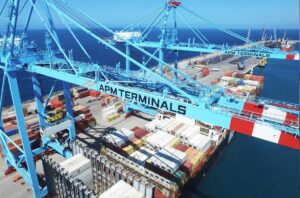Business facilitation, enabling environment critical goal for 2022 budget proposal — ACCI
The Abuja Chamber of Commerce and Industry (ACCI) has called on relevant ministries and agencies to target business facilitation and positive enabling environment as a critical goal for the 2022 budget proposal.
The Chamber also noted that the 2021 Budget should be seen and reviewed within the context of global economic recession and dislocation of global production value chains.
President, ACCI, Dr Al-Mujtaba Abubakar made the call on Tuesday at a webinar organised by the chamber to review Implementation of 2021 Budget and Appraisal of 2022 Proposals.
Abubakar, while restating the private sector’s position, said that economic growth was best guaranteed by business enabling environment and removal of regulatory bottlenecks within the economy.
According to the president, while successes are recorded in the completion of critical infrastructures, the state of insecurity has complicated the productive processes within the agricultural sector.
Abubakar noted that an already negative situation was further worsened by the dwindling fortunes of the naira against other major currencies, coming at a time of low export and high import which negatively impacted on the nation’s foreign reserves.
“The economic climate worldwide is challenging as nations struggle to cope with fallout of the COVID-19 pandemic.
“Across Africa, governments are struggling to innovate and achieve stabilisation after global disruption that is still reverberating in many parts of the world.
“For us in Nigeria, the economy faces multiple challenges even as government makes the best out of complex situation by focusing on infrastructural development and innovative financing,” he said.
In the face of dwindling revenue, he said borrowing had become inevitable, generating concerns about debt distress while inflation rate was continuously high.
He further said the recent second quarter Gross Domestic Product growth while commendable had not assuaged the structural hiccups within the economy.
“It is urgent for the administration to address issue of multiple taxation that is killing most businesses. We urge the Presidency to issue executive order on the issue of multiple taxation. This should be treated as an emergency.
“While we understand the drive to generate tax revenue due to shortfall in oil earnings, we also want to call attention of the administration to the strongly negative impact of excessive taxes on Nigerian business community.
He, however, noted that the outcome of the webinar would surely reach relevant agencies and officials for action.
Chairman, Fiscal Responsibility Commission (FRC), Mr Victor Muruako,in an address, said the fiscal responsibility act 2007 inter-a-lia provided direction for economic and budget policy coordination and management.
Muruako, represented by an official of the commission, Mr Hyacinth Abutu, explained that it formalised the preparation of Medium Term Expenditure Framework (MTEF), Annual Budget, Budget Approval, Execution, Evaluation/Monitoring and Auditing.
Against this backdrop, he said it was imperative to assess budget proposals and implementation to control expenditures and predict future budget needs, thereby providing decision makers with information to prepare the budget for next fiscal period.
He expressed hope that the deliberations would produce informed policy formation that would aid the National Assembly in considering and approving the 2022 Budget Proposals to be submitted to it by the President.
According to him, the webinar discussion should also determine priorities of government and check whether current and medium-term costs of existing policy matched with available resources.
He equally noted that it should check whether revenue and expenditure provisions in the proposed 2022 budget aligned with the Federal Government stated policy goals and the needs and priorities of the public.
“Tied to this, is whether the estimates of revenue and expenditure are reasonable and accurate,” he added.
He tasked stakeholders to also check how the budget would affect the government’s annual deficit and national debt, as well as such economic outcomes as inflation, growth and employment.




